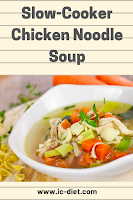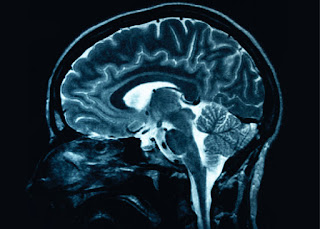I believe I have had IC since I was a teenager, but it took until I was 38 to be diagnosed. As a high school student I didn't understand why there was only 5 minutes between classes. Didn't everyone have to use the bathroom between classes? Honestly, I never thought I was different than anyone else. When I had my first "UTI" at 17, it never entered my mind that I could have been misdiagnosed. I was more embarrassed to have to talk to someone about what was going on “down there.”
One day, as a sophomore in college during an extraordinarily stressful time I went to the bathroom and filled the bowl with bright, bloody urine. I was panicked...went to the doctor later that day and by then, there wasn't anything was in my urine. They gave me antibiotics anyway, but I still felt like a fraud. At 19 I learned to keep this sort of thing to myself. (Now I know stress plays a huge role in my IC.)
When I got married, I ended up with "repeat UTIs" and the university clinic referred me to my first urologist. He completely mortified me when he called it "honeymoon cystitis" and then went on to say, "This sort of thing happens to you girls when you start to have sex with multiple partners." I was so paralyzed with embarrassment I couldn't even remind him that I was married--couldn't he see my rings? Didn't he read my chart? Again, I clammed up and didn't say anything for a long time.
Over the next 15 years I jumped from doctor to doctor, urgent care to urgent care every time I had a "UTI," partly because we moved a lot in those early years, but partly because I just couldn't risk the chance that I would be blamed in some way for something that I knew wasn't my fault. I was not assertive enough to stand up for myself--yet. Maybe if I hadn't done that, I would have been diagnosed sooner.
Finally, at about age 35 things got out of control, and I became nearly bedridden for two years. My kids were in junior high and high school age and it took all of my energy to get up in morning, do a couple of chores, work part-time and put dinner together. Often one or another thing got pushed aside because I was so sick and exhausted. My once organized home became a cluttered mess. My biggest grief was that I wasn't able to be the kind of mom I had been in the past. I couldn't get up early enough to make breakfast for my kids when they were in high school, I rarely volunteered at school anymore, and I had to say no way, way too often. I do have to say this, I made sure that I was always at "events" like ball games or concerts or ceremonies.
About that time, my family doctor, who is magnificent, started to suspect IC, and sent me to a urological clinic. Although my family doctor was on the right track, I got stuck with a urologist who "didn't believe in IC." At one point he blamed my husband for "giving" me something-what a mess. I was also put on long-term antibiotics, given anti-depressants (which, because I wasn't depressed, completely flipped my brain out), and subjected to urethral dilations. (I know now it probably made me worse).
The last straw came when I called my boss at 10 pm one night to tell him I couldn't open the office the following day. He was furious, even though I had never missed work. I calmly reminded him of all the extra time I put in the previous year when another dietitian's father was in the hospital for several months. He wouldn't hear of it. I had no choice but to quit on the spot. The good news was that I finally had stood up for myself, and the next day was when I began to really get help.
That morning, I camped out on the steps of the urologist's office before they opened. His nurses and assistants got there before him and hustled me into the office. Two or three of them got busy on the copiers, and another one told me "You are in the wrong place. This doctor cannot help you. Go to your gynecologist, rule out anything there, then if you need a urologist go see Dr. ****, he is the best for IC in Michigan." She gave me the new doctor's phone number, and the others handed me a stack of my records still warm from the copier. I left stunned, but stronger.
Today I am FOREVER grateful for those brave women who had the guts to tell me what their boss would not. No offense to the male IC patients out there, but I should have known months before that I was seeing the wrong urologist when week after week I was the only female patient in the waiting room. Doctors who really know IC usually have a fair amount of IC patients mixed in with the vasectomy and prostate patients. :-)
The rest of my story is uneventful, except that it still took another year of tests and doctor appointments to get the true diagnosis, and still another few years to get me on track with the right medications and lifestyle changes. As I say in my books, even as a dietitian, I was very much in denial about the interaction of food with my symptoms for a long time, but eventually I was able to add a lot of foods and certain beverages back into my diet.
In some ways I think IC changed me in very positive ways. I am much more assertive and don't take bad medical care lightly for my family or me anymore. I have learned to cherish and enjoy the time that I feel good. I probably accomplish much more these days because I don't waste time on meaningless activities.
I also prioritize the people in my life better than I ever did. I practice stress management, make sure I get plenty of sleep, and I don't waste my time with people who don't understand my illness. These "toxic" people can drain all the energy out of you and actually make you sicker. I DO spend a lot of time with my family, and try to never take that for granted. I have to say, that without exception, my kids survived their teen years of having a "sick" mommy, and they are all amazing, compassionate, loving adults.
Finally, whether this is a road I would have chosen or not, I believe now I got sick for a reason; that since I have the unique experience of knowing food and IC, I am able to help thousands of other people who do not know where to begin with the puzzle of the IC Diet. I have visited IC support groups all over the country now, and have counseled people from Maine to California on the IC Diet. Frankly, I wrote the books because I couldn't be everywhere at once, and although some people couldn't afford my consultation fees, most could afford a paperback book.
Thanks for letting me share my story with you. It is interesting how so many elements of my story parallel other IC patients. Maybe someday we will be able to streamline the diagnostic process, and fine-tune the treatments available. Until then, we have to lean on and learn from each other.
Julie Beyer, MA, RDN
Author, Speaker, Patient Advocate
 Just Tell Me What to Eat!
Just Tell Me What to Eat!
For step by step guidance for creating your own personal interstitial cystitis meal plan, see: Confident Choices®: Customizing the Interstitial Cystitis Diet.
For some basic, family-style, IC bladder-friendly recipes, see: Confident Choices®: A Cookbook for Interstitial Cystitis and Overactive Bladder
For health care workers: Interstitial Cystitis: A Guide for Nutrition Educators **Please SHARE using the links below!**












